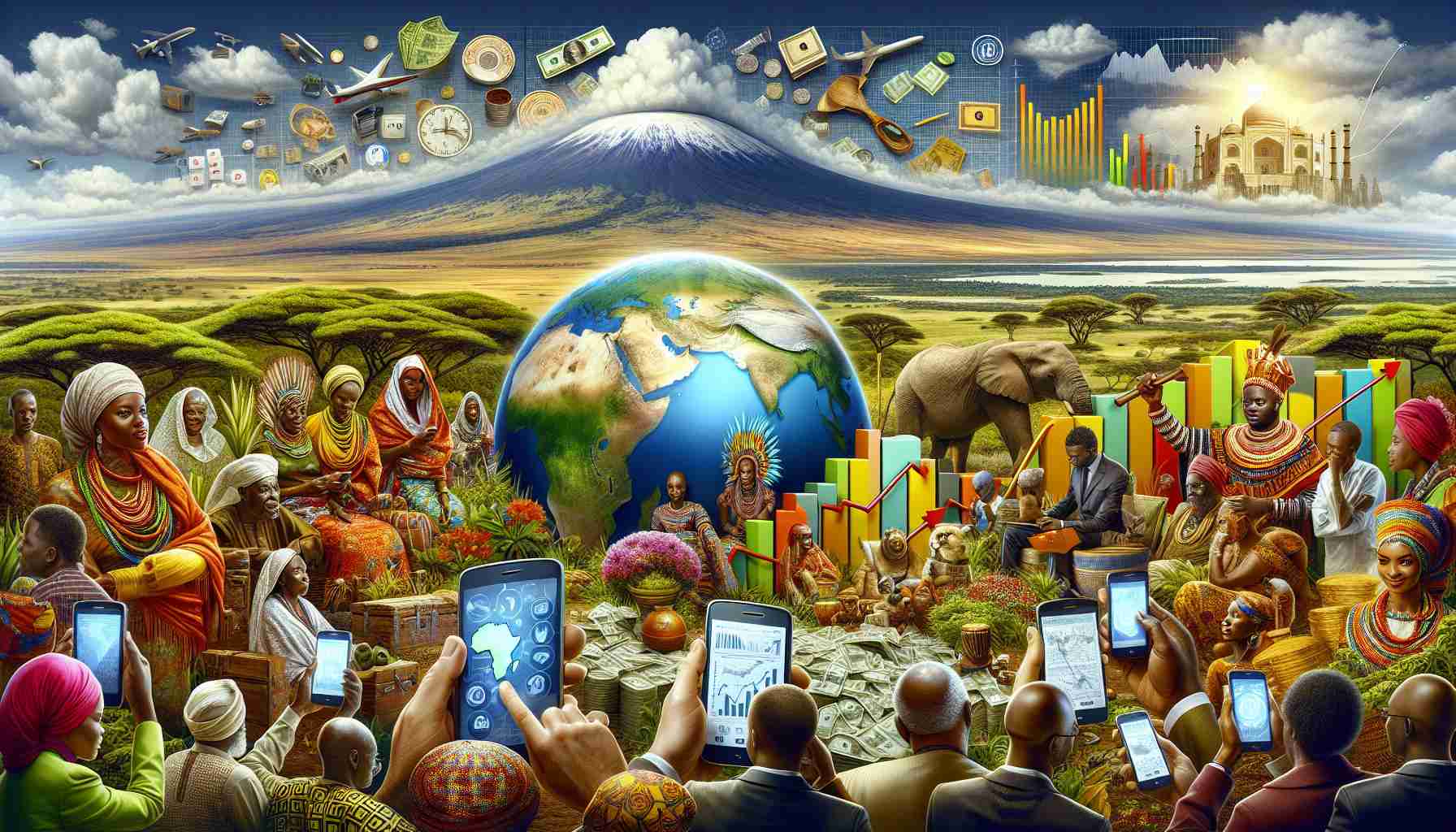Mobile internet access is revolutionizing the economic landscape in Africa by addressing infrastructure shortages. Despite an 85% network coverage in Sub-Saharan Africa, usage on phones sits at a mere 25%. In Ghana, efforts are underway to bridge this digital divide.
In the southeast Ghanaian village of Atabu, a vegetable farmer named Cyril is transforming his business using his smartphone. The internet has opened a treasure trove of information, from planting techniques to weather reports, allowing Cyril to make informed decisions that could potentially enhance his yields. He expresses his enthusiasm for the ease of finding necessary information online using his new intelligent phone.
The digital gap remains substantial, with four out of five people in the region remaining offline. Ghana recognizes that increasing mobile internet access is essential for stimulating economic development. However, the cost of purchasing a smartphone continues to be a significant hurdle for many entrepreneurs.
Anita, who oversees a thriving catering business in Accra, credits her success to her internet-enabled phone. She receives orders from a variety of social media platforms and messaging apps, which would be impossible without an internet connection. Her experience highlights the indispensable role internet access plays in modern commerce.
Key Questions and Answers:
– What is the impact of mobile internet on economic growth in Africa?
Mobile internet facilitates economic growth by improving access to information, reducing transaction costs, enhancing trade and commerce, and fostering innovation.
– What are the main challenges in increasing mobile internet usage in Africa?
Key challenges include affordability of smartphones, the cost of data, network unreliability, and digital literacy.
– How does the digital divide affect economic opportunities in Africa?
The digital divide limits access to market information, financial services, educational resources, and government services, which can stymie economic development and contribute to persistent inequality.
Advantages of Mobile Internet in Africa:
– Economic Empowerment: Individuals and businesses gain access to broader markets and resources, enabling economic expansion and empowerment.
– Access to Information: People have real-time access to information including weather forecasts, market prices, and educational content.
– Financial Inclusion: Mobile banking and financial services become more accessible, fostering financial inclusion for the unbanked.
– Healthcare: Mobile health applications can improve healthcare delivery and support.
Disadvantages of Mobile Internet in Africa:
– Affordability: High costs can prohibit access to mobile internet services, disproportionately affecting lower-income individuals.
– Infrastructure Challenges: Inconsistent electricity supply and inadequate network infrastructure can lead to unreliable internet service.
– Security and Privacy: Increased internet usage raises concerns over data protection, privacy, and security.
– Digital Literacy: Limited digital literacy can hinder the effective use of mobile internet services.
Key Challenges and Controversies:
– The gap in infrastructure: While coverage may exist, the quality and reliability often vary, making consistent access a concern.
– Digital literacy: Skills training and education are necessary for people to capitalize on the opportunities presented by the internet.
– Privacy and security issues: With increased internet usage, there are growing concerns around data protection and cyber threats.
For further information on the topic of Mobile Internet and its impact on economies, particularly in the African context, you may visit these main domains:
– GSMA
– World Bank
– International Telecommunication Union (ITU)
Please note that you should confirm the relevancy and the current status of the provided URLs as I am unable to browse the internet directly to guarantee their validity.
The source of the article is from the blog queerfeed.com.br
